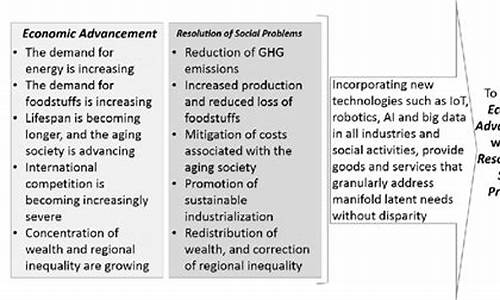您现在的位置是: 首页 > 成语典故大全 成语典故大全
advantages_advantages of taking liberal arts courses
tamoadmin 2024-07-11 人已围观
简介1.have an advantage in sth.是什么意思2.superiority 和advantage的区别3.“利大于弊 弊大于利”英语怎么说4.谁知道利大于弊的英文翻译英语翻译如下:1、the advantages will far exceed its shortcomings.2、Therefore, its superiority will go far beyond its
1.have an advantage in sth.是什么意思
2.superiority 和advantage的区别
3.“利大于弊 弊大于利”英语怎么说
4.谁知道利大于弊的英文翻译

英语翻译如下:
1、the advantages will far exceed its shortcomings.
2、Therefore, its superiority will go far beyond its shortcoming.
3、its advantages far outweigh the disadvantages.
单词解析:
1、advantages:
发音英 [?d?vɑ?nt?dz] 美 [?d?v?nt?dz]
翻译
(1)作名词时:有利条件;有利因素;优势;优点;(局末平分后)占先;优势分
(2)作动词时:使处于有利地位;有利于;有助于
2、superiority:
发音英 [suprir?ti] 美 [sup?ri?r?ti]
翻译优越(性);优势;优越感;神气活现的样子;盛气凌人的行为。
扩展资料:
两个单词均可翻译为“优点”,superiority和advantages 的用法差别:
superiority相比于advantages ,两者都有“优势”的意思,但除此之外,superiority还有优越、上级、优越感的意思,比如:
She was prepossessed with the notion of her own superiority.
她满脑子充满着优越感。
When you superiority so much,want some tore on bypast.
当你十分高傲时,想想过去的惨痛的教训。
而advantages更突出的是利益,好处等,例如:
It is believed that the Internet has?both advantages and disadvantages.
人们认为互联网有利也有弊。
He took a mean advantage of me.
他利用卑鄙的手段占我的便宜。
have an advantage in sth.是什么意思
advantage的意思是优势。
英 [?d'vɑ?nt?d?],美 [?d'v?nt?d?]
n. 优势;有利条件
vt. 有利于
过去式:advantaged,过去分词:advantaged,现在分词:advantaging
短语:
1、gain an advantage 取得优势?
2、grasp advantages 抓住有利条件?
3、get an advantage 取得优势
近义词
benefit ?
英 ['ben?f?t],美 ['ben?f?t]
n. 利益;津贴;义演;保险金;借助
vt. 有益于;得益
短语:
1、benefit correspondingly 相称地受益
2、benefit directly 直接受益
3、benefit economically 受益很少
用法:
一、v. (动词)
1、benefit的基本意思是“受益”,强调改善或优化个人状况(如身体、智力、道德或精神状态),也可表示对某人的目标的实现有所促进。用作不及物动词时,意思是“得益”;用作及物动词时,意思是“有益于”。
2、benefit常与介词from或by连用,表示“从中受益”。
二、n. (名词)
1、benefit用作名词的基本意思是“好处”,可指任何形式的“益处”,包括物质方面和精神方面的益处。
2、benefit视其含义的具体或抽象,可用作可数名词或不可数名词。
superiority 和advantage的区别
have an advantage in sth.
在某事上有优势
advantage
英[?d?vɑ:nt?d?]
美[?d?v?nt?d?]
n. 有利条件; 益处; 优越(性); 处于支配地位;
vt. 有利于; 有益于; 促进; 使处于有利地位;
vi. 得益,获利;
[例句]They are deliberately flouting the law in order to obtain an advantage over their competitors
他们为了和竞争对夺先机而公然无视法律。
[其他] 第三人称单数:advantages 复数:advantages 现在分词:advantaging 过去式:advantaged 过去分词:advantaged
“利大于弊 弊大于利”英语怎么说
又到了为小伙伴们解惑的时候了 (*?ω?),superiority通常用于描述产品、服务或思想等方面的差异与优越性。advantage用于描述各种竞争中的有利条件,包括企业竞争、体育竞争等。这里就给大家总结了一个它们基础知识的表格,可以先简单了解一下先:
了解完superiority 和advantage的基础知识后,现在就来看看它们的具体区别~(@^_^@)~
1、含义不同
"Superiority": 指一种(产品、思想等)比其他同类产品或思想更好的质量、品质、特性,与其他相比具有较高的品质和优越性。
例句:The car company promotes the superiority of its vehicles over others on the market.(汽车公司宣传其车辆在市场上比其他车辆更具优越性。)
"Advantage": 指拥有某种特征、资源等的个人、机构或事物在某一情境中所占的有利地位,可以是相对的或者绝对的。
例句:If you learn programming, you will have a great advantage in the job market.(如果你学会编程,你在就业市场中会有很大的优势。)
2、领域不同
"Superiority": 通常用于描述产品、服务或思想等方面的差异与优越性。
例句:The company's flagship product has technological superiority over its competitors.(公司的旗舰产品在技术上比竞争对手更优越。)
"Advantage": 与"Superiority"不同,"Advantage"用于描述各种竞争中的有利条件,包括企业竞争、体育竞争等。
例句:The athlete’s experience gave him an advantage over his younger opponents.(运动员的经验帮助他在比赛中占据优势,打败了年轻的对手。)
3、形容词使用不同
"Superiority": 通常被用作形容词,描述一种更好,更高的品质。
例句:This brand of wine is superior in taste to others.(这个品牌的葡萄酒口感比其他品牌更好。)
"Advantage": 通常被用作名词,表示有利的情形。不过有时也可用作形容词。
例句:The new product has several advantages over the previous model.(新产品比旧款有几个优点。)
4、针对对象不同
"Superiority": 着眼于个体内部的优越性,是比较一种产品、思想、方法、策略等同类别对象之间的优越性。
例句:The new software has superiority over the old version in terms of functionality.(新软件在功能上比旧版更为优秀。)
"Advantage": 着眼于个体间的优势,是比较个体拥有的资源、技能和价值等的差异性。这种差异性可以是相对的,也可以是绝对的。
例句:The team has an advantage in size and experience over their opponents.(这支队伍在阵容规模和经验方面占据优势。)
5、表达方式不同
"Superiority": 描述一种能够胜过其他产品、思想等的品质、特点,是量化的比较。
例句:They have a technological superiority that has allowed them to dominate the market.(他们拥有技术优越性,使他们能够在市场上占据主导地位。)
"Advantage": 笼统地赞扬个体或事物在某些方面具有占优势的能力,是一种主观判断。
例句:Her international experience gives her an advantage when working with clients from different cultures.(她的国际经验使她在与来自不同文化背景的客户合作时占有优势。)
谁知道利大于弊的英文翻译
利大于弊的英文:The advantages outweigh the disadvantages.;弊大于利的英文:The disadvantages outweigh the advantages.
固定搭配:
1、economic advantage?经济利益,经济优势
2、absolute advantage?绝对利益
3、to the advantage of?对……有利
advantage 读法 英?[?d'vɑ?nt?d?]?美?[?d'v?nt?d?]?1、n. 优势;利益;有利条件
2、vi. 获利
3、vt. 有利于;使处于优势
扩展资料词语用法:
1、advantage还可作“利益,益处”解,是不可数名词,其后可接介词from或in。在the?advantages of e-mail over telegram中注意搭配使用的是over;
2、advantage的基本意思是“有利条件,优势”,指条件、环境、地位等优于他人或其他事物,而不指物质方面的好处,是可数名词。常与介词over连用,指“与…相比的长处”; 作“优越性”解,其后还可接介词to。
3、advantage后接的介词of与over可替换,表示相同意思。
You have the advantage of/over me in experience.
你比我有经验。
词汇搭配:
1、enhance advantages 加强有利条件
2、enjoy the advantage of 享受…的便利
3、gain an advantage 取得优势
4、grasp advantages 抓住有利条件
5、get an advantage 取得优势
利大于弊:The advantages overweigh the disadvantages.
advantage 英[?d?vɑ:nt?d?] 美[?d?v?nt?d?] ?
n. 有利条件; 益处; 优越(性); 处于支配地位; ?
vt. 有利于; 有益于; 促进; 使处于有利地位; ?
vi. 得益,获利; ?
1、最后,你告诉他可能利大于弊。
In the end, you might do more harm than good by telling him.
扩展资料反义词disadvantage表示不利的。
英 [?d?s?d?vɑ:nt?d?] ?美 [?d?s?d?v?nt?d?]
n.不利,劣势,短处;损失
1、It will be to our mutual disadvantage.
那将对我们双方都不利。
2、The kernel of that message was that peace must not be a source of advantage or disadvantage for anyone.
那一信息的核心是和平绝不应该成为对任何人有利或不利的根源。
下一篇:贼眉鼠眼_贼眉鼠眼是什么生肖?









